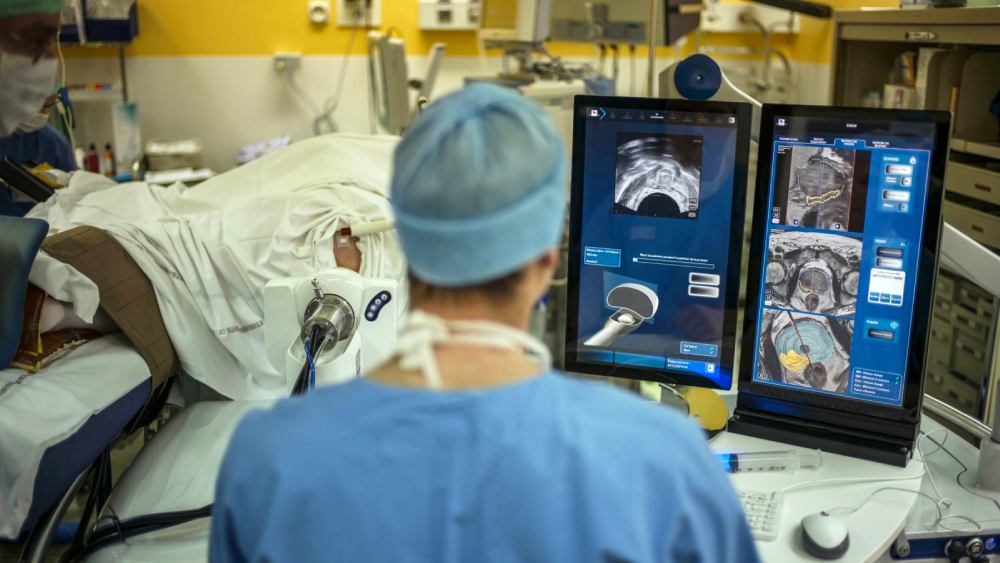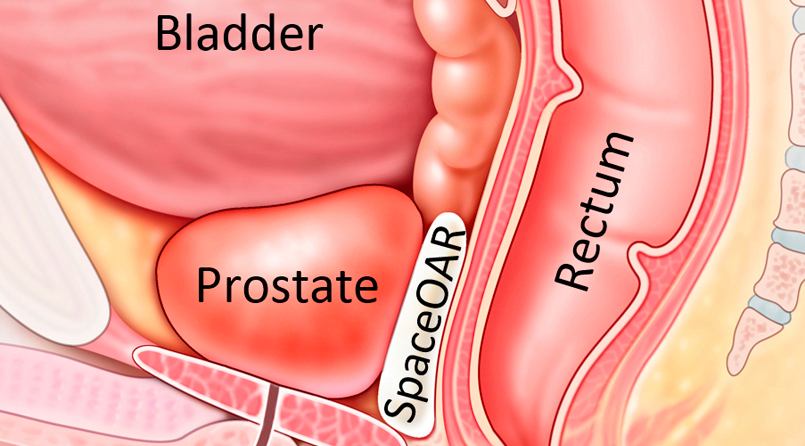
What are the symptoms of prostate cancer? How is prostate cancer treated? Cancer that grows in the prostate refers to prostate cancer. In a male, the prostate gland make the seminal fluid that nourishes the sperm and transports it. The prostate cancer treatment options are either minimal or no treatment required. It is best treated when confined to the gland and not outgrown. However, prostate cancer can be cured through medical tourism.
WHAT ARE THE SIGNS OF DETECTION
Prostate cancer may cause signs such as:
- Problem while urinating.
- Blood in the urine.
- Semen containing blood.
- Bone pain.
- Extreme weight loss without trying.
- Erectile dysfunction.
- Lesser force in the stream of urine.
- An enlargement of the testicle.
- A significant loss in size of one of the testicles.
- If the scrotum feels heavy.
- A dull ache in the lower abdomen.
- A collection of fluid in the scrotum.
- Uneasiness or pain in the scrotal sack.
- Enlargement or tenderness of the breasts.
- Lower back pain causes lymph nodes at the back of the belly.
- Shortness of breath, chest pain, coughing of blood, or even regular coughs.
- Belly pain is due to the lymph nodes when cancer spreads to the liver.
FORMS OF PROSTATE CANCER
There are different types some of which include:
- Adenocarcinoma of the prostate
- Transitional cell carcinoma of the prostate
- Squamous cell carcinoma of the prostate
- Sarcoma
- Lymphoma
Adenocarcinoma of the prostate
These are born in the gland cells, as adenocarcinomas line the prostate gland and its tubes. Almost everyone diagnosed with this prostate cancer is affected by this type. Although it may induce obstructive urinary symptoms that mirror nodular hyperplasia, prostatic adenocarcinoma has no typical presenting symptoms and is typically clinically quiet. As a result, cancer can occasionally show signs of metastatic spread in places like the bone and cervical lymph nodes. In the aforementioned clinical situations, the diagnosis might be made.
Most cases of prostate cancer are asymptomatic. About multiple prostate cancers start in the periphery, and some of these can cause incorrect DRE results. In rare cases, prostate cancer can cause urinary obstruction if a sizable tumor mass develops in the transition zone, spreads there from the peripheral region, or decides to invade the bladder neck. Hematuria, rectal hemorrhage, or blockage may be brought on by locally aggressive prostate cancer that affects the bladder and rectum. There are two types of this form of cancer:
- Acinar adenocarcinoma of the prostate develops on the prostate gland's parts that line it up.
- Ductal adenocarcinoma of the prostate forms at the prostate gland's duct; it spreads more rapidly than adenocarcinoma.
Transitional cell carcinoma of the prostate
This begins at the tube, transporting urine to the urethra and outside the body. This starts in the bladder and spreads to the prostate further. In men, part of the urethra passes through the prostate. It connects to a tube that supplies prostatic fluid and semen during ejaculation.
This type of cancer tends to be very aggressive. It can reach nearby lymph nodes and even spread throughout the body, down to bones and organs such as the lungs and liver.
Squamous cell carcinoma of the prostate
It is a rare tumor, making up 0.5% to 1% of all the distinctive forms of cancer. It is an aggressive form with a post-diagnosis survival chance of only a year and two more months. They develop from the flat cells covering the prostate and spread more quickly than adenocarcinomas.
The other two types are relatively rarer than the first three forms of prostate cancer; they include Sarcoma and Lymphoma.

Treatment for Prostate Cancer
Can prostate cancer be cured? Well, YES! Prostate cancer can be treated in a variety of ways. Which treatment is best for you your doctor will decide for you.
Expectant management is one of the standard treatments. Your doctor can advise against starting treatment for the disease immediately if they believe your prostate cancer won't spread rapidly. Instead, you have two options for waiting to see if you experience symptoms:
Active monitoring Prostate biopsies and regular PSA testing are used to closely monitor prostate cancer, which is only ever treated if it spreads or presents with symptoms.
Waiting with caution: In this, nothing is tested. When symptoms arise, your doctor will treat them. This is typically advised for males who have ten years or less to live.
Surgery: In a prostatectomy, the prostate is surgically removed. In a radical prostatectomy, the prostate and its surrounding tissue are removed.
Radiation treatment: using X-ray-like high-energy radiation to eradicate cancer. Two forms of radiation treatment exist:
- Radiation treatment is applied externally. Radiation is directed at the tumor cells by a device outside the body.
- Treatment with internal radiation (brachytherapy). To eliminate the cancer cells, radioactivity seeds and pellets are surgically implanted into or close to the malignancy.
Cryotherapy
Freezing and killing the cancer cells by inserting a specific probe adjacent to the prostate cancer.
Chemotherapy
Using unique medications to reduce or eradicate cancer.
The medications may be taken orally, injected into your veins, or occasionally both as prostate cancer oncology.
Biological treatment
Collaborates with your body's immune system to combat cancer or manage the adverse effects of other cancer therapies.
Your body's response to medications or other therapies is known as a side effect.
Ultrasound with high focus and intensity
Ultrasound is used in this therapy to target malignancy and destroy cancer cells.
The best prostate cancer treatment option is available at various oncology hospitals and can be looked out for prostate cancer treatment abroad. Therefore, diagnosis and treatment abroad gain more popularity.
Written by Natalia Volvak

Written by Michael Zippo
Michael Zippo, passionate Webmaster and Publisher, stands out for his versatility in online dissemination. Through his blog, he explores topics ranging from celebrity net worth to business dynamics, the economy, and developments in IT and programming. His professional presence on LinkedIn - https://www.linkedin.com/in/michael-zippo-9136441b1/ - is a reflection of his dedication to the industry, while managing platforms such as EmergeSocial.NET and theworldtimes.org highlights his expertise in creating informative and timely content. Involved in significant projects such as python.engineering, Michael offers a unique experience in the digital world, inviting the public to explore the many facets online with him.
